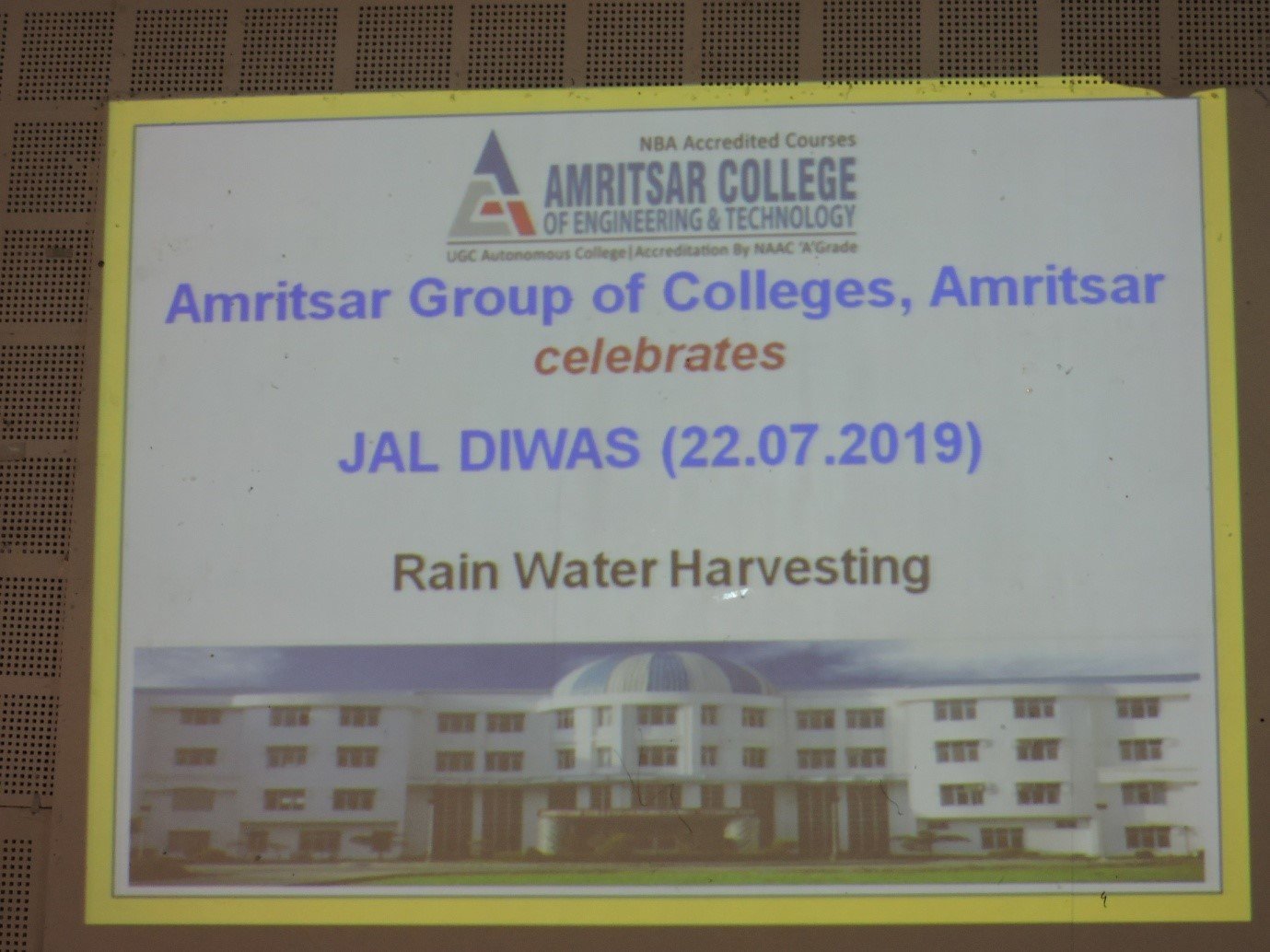
As Amritsar Group of Colleges is located in rural area, there is no Municipal Water supply for the college. The college depends on ground water for all its water needs. Hence, efficient usage of available water and adaptation of water conservation measures are essential. The daily requirement of water in the campus is around 300000 litters.
The following measures are taken for the conservation of water:
The rain water coming from roof tops and that flowing within the campus are collected in percolation pits of 6m x 6m size each, constructed at all feasible points in the campus recharge ground water. The construction cost of harvesting pits is about Rs 1,46,000.
The college campus depends on ground water for all its needs and the daily need of water in the campus is around 1,35,000 liters (approx.,). To compensate the mentioned daily need we had constructed number of bore wells with different depths as per the sub soil water position and all are recharge regularly with harvesting ponds and harvesting and soak pit
In the institute, separate hostels are constructed and these are accommodating around 1200 boys and 500 girls. Almost 50,000 liters of water demand is for these hostels for smooth functioning. Total water demands is being meet extract from ground water through bore wells and these are recharged with ground tanks and harvesting pits. Total waste water produced from these hostels treated with centrally constructed decentralized waste water treatment plant. This decentralized waste water treatment plant in the Boys and girls hostel premises and an amount of Rs 1.00 Crore is being spent to bring the system into functionality. The waste water after treatment is proposed to be utilized effectively for gardening purpose. This will incidentally drastically reduce the usage of fresh water.